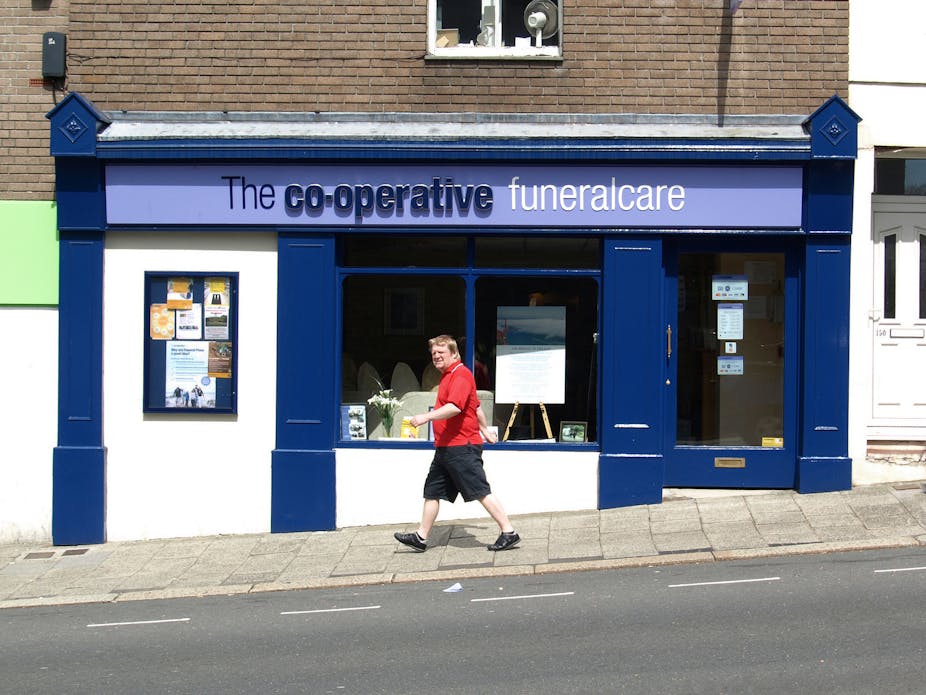The shocking and rapid resignation of Euan Sutherland, the chief executive of the Co-operative Group, shines a light on the clash of cultures being played out at the top of this organisation.
Sutherland represents a traditional management approach in which the CEO is able to decide on the strategic direction of the business and make the necessary sacrifices to sell off non-core operations and drive through redundancies.
On the other hand the board of the Co-op represent the members who collectively own the business. Depending on your point of view they either embody the stewardship of the business as a whole, or are subject to special pleading from their constituents.
With Sutherland’s resignation we know the traditional management style lost. But we do not yet know if good stewardship or special interests won.
Different way of doing business
The Cooperative Group is an unusual business as it is owned by its members and not by shareholders. It was founded in 1844 to embody a vision of harmony and ethics in the delivery of services from food to pharmacies to banking.
Anyone can apply to become a member, and members are typically customers and employees. Even societies who share the ethical outlook of the Co-op can become members. The board of the group is entirely made up of elected representatives of these members. The CEO does not formally sit on the board.

Sutherland became CEO of the Co-op ten months ago at a disastrous time for the group. Losses were spiralling out of control, in large part due to a crisis at the banking arm. Mr Sutherland set out his business-leaning inclinations by controversially selling a 70% stake in this bank to mainstream corporations including hedge funds – a move that more or less coincided with the outing of then Co-op chairman Paul Flowers as a flamboyant drug user.
Ethical clash
Many questioned whether Sutherland’s solution was compatible with the ethical stance of the bank. As part of this deal the Co-operative group recapitalised the bank, which involved taking a hefty debt burden onto their books that they now need to service. Many financial journalists have since noted that the group is carrying too large a debt burden and has high costs compared to its competitors.
Sutherland determined that the business had to be put on a sustainable footing by refocusing on its core strengths. This was to mean selling off the Co-op farms and potentially also the pharmacies chain. The pharmacies business alone employs many thousands of people, many of whom will be Co-op members.
In any business no CEO can achieve this without the board’s support. Sutherland sought to secure this with a back-me-or-sack-me demand in the form of a tendered resignation.
If the Co-op had been a shareholder-owned firm with a board whose task it was to maximise shareholder value, it would be hard to disagree with the fundamentals of Sutherland’s strategy. However the Co-op is not such a firm, but a member-owned entity which exists to provide benefits for those members.
The board was being asked to endorse a policy that would see some sections of the business sacrificed for the rest. Unusually in such cases, the people affected had direct representation on the board through their elected representatives.
The ensuing fight was not clean. The leak last weekend of the CEO’s pay package was a tactic designed to play the man, not the ball. But from the elected representatives’ point of view, they were being asked to simultaneously swallow a doubling of the CEO’s pay and the redundancies of the very people who voted to put them on the board.
Heels in the ground
The board showed itself unwilling to do this. It has demonstrated that it will not dispassionately sacrifice some parts of the business to recoup money lost essentially via banking.
It is tempting to conclude that the Co-operative group has shown itself to be weak and that the difficult decisions necessary to maximise profits cannot be taken by the member-owned model. One might think that the elected representatives are too quick to succumb to the special pleading of their constituents and so lose sight of the business as a whole.
In my view this conclusion is too pessimistic. The Co-operative group has demonstrated it is not a profit-maximising structure. It never meant to be. Instead it has elected to remain as a family of firms, not willing to sacrifice people and businesses due to short-run concerns.
Clearly the future now holds great uncertainty and a lower profit rate. The large debts built up will need to be serviced. But the Co-op governance has shown that an inclusive solution must be found which delivers what customers want while generating enough profit to secure the future. Not the most profit possible at any price.

